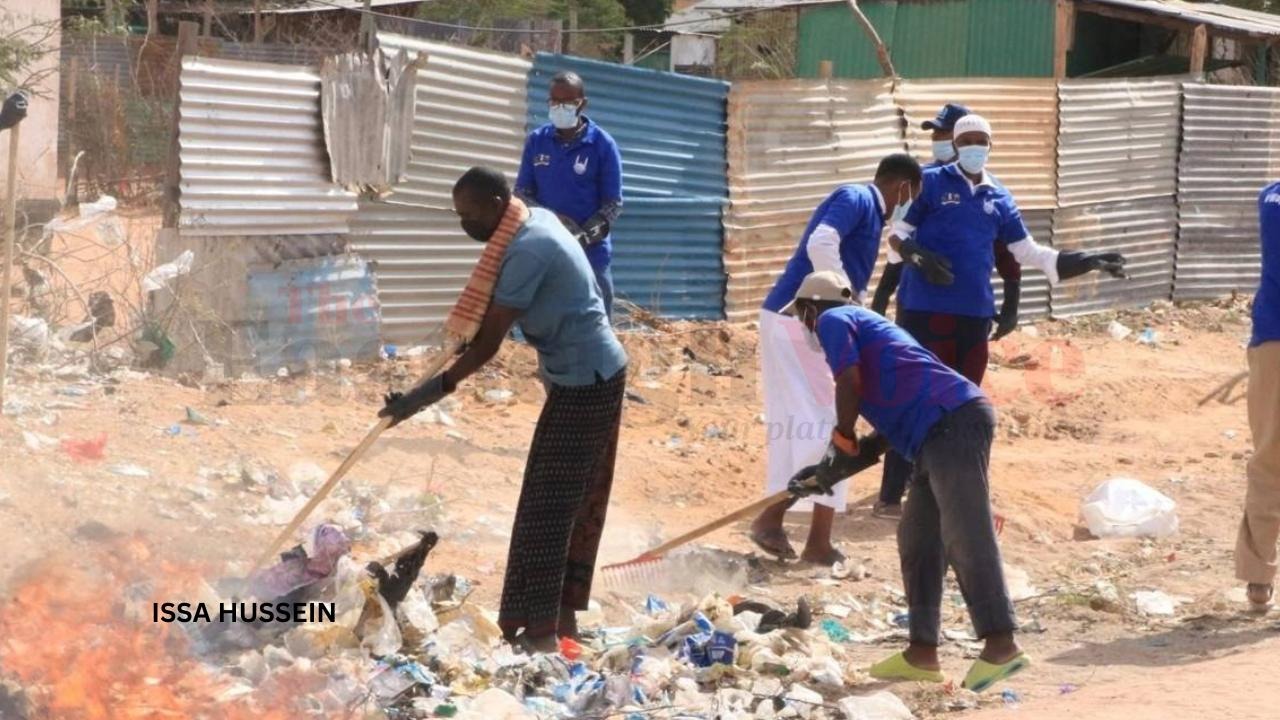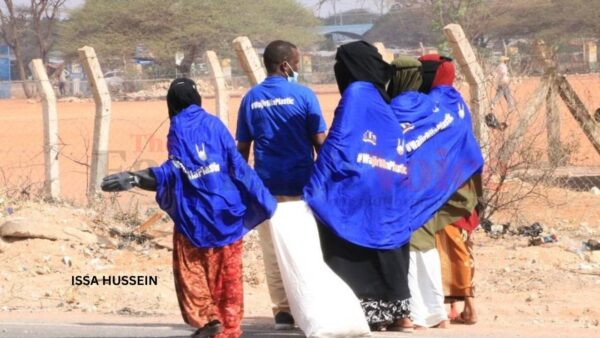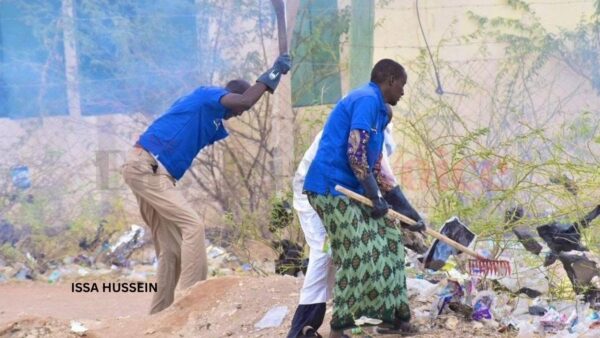Wajir rallies to end plastic pollution with bold eight-day clean-up campaign

The eight-day "Wajir Bila Plastic" (Wajir free of plastic) drive has brought together youth groups, community leaders and partner organisations in a united effort to rid the town of harmful waste.
Wajir town is stepping up its environmental activism with a bold new campaign to clear plastic waste from its streets and address the health hazards associated with pollution.
The eight-day drive, dubbed "Wajir Bila Plastic" (Wajir Without Plastic), has brought together youth groups, community leaders, and partner organisations in a united effort to rid the town of harmful waste.
More To Read
- Landmark French ruling against TotalEnergies sets stage for major African climate lawsuits
- Wajir’s Soko Mjinga market reduced to ashes in devastating fire, traders face crushing losses
- Ecoball: How to make picking up litter fun and turn it into a game for kids
- Nine common household items that could be silent killers
- Contaminated water from River Kibos blamed for fish deaths at Dunga Beach
- How Nigeria’s plastic waste could enrich the fashion industry
Spearheaded by Islamic Relief Kenya’s Wajir field office, the initiative goes beyond beautifying the town—it tackles the pressing challenges of environmental degradation and public health risks caused by plastic pollution.
At the launch, Nimaa Adan, a representative from Islamic Relief Kenya, underscored the campaign’s collaborative spirit.
"This initiative is designed to curb plastic pollution and bring together the youth from three wards, working alongside various stakeholders," Nimaa said.
 The Wajir Bila Plastic tackles the pressing challenges of environmental degradation and public health risks caused by plastic pollution. (Photo: Issa Hussein)
The Wajir Bila Plastic tackles the pressing challenges of environmental degradation and public health risks caused by plastic pollution. (Photo: Issa Hussein)
Youth groups
Five youth groups from across the three wards are now leading clean-up activities in streets, markets, and public spaces. Their work is already making a visible difference, boosting civic pride and encouraging residents to adopt responsible waste disposal practices.
For community elders like Omar Tanicha of Barwaqo Ward, the stakes are deeply personal.
"We are dealing with a crisis where livestock are suffering because of plastic waste," Omar explained. "Many of our animals are swallowing plastic bags, which leads to illness and even death. This affects our livelihoods directly, and that's why today's clean-up is so important."
The problem is particularly urgent in pastoralist communities like Wajir, where livestock underpins both household income and food security. Clearing grazing areas of plastic helps protect both the environment and families’ economic well-being.
Shared responsibility
The campaign has also drawn strong support from the Wajir Municipality. Municipality Manager Omar Shano emphasised shared responsibility for public hygiene.
"Public hygiene isn't just the responsibility of the county government," Omar said. "It's up to all of us. We are grateful to Islamic Relief Kenya for their support and encourage other organisations to get involved in this important initiative."
Beyond the clean-up, the campaign is raising awareness about sustainable waste management. Shopkeepers, families, and passersby are being urged to dispose of waste properly and reduce reliance on single-use plastics.
While the immediate impact is visible on Wajir’s streets, the hope is to trigger lasting behavioural change and nurture a culture of environmental responsibility. Encouragingly, residents are already showing greater enthusiasm for keeping the town greener and healthier.
 Beyond the clean-up, the campaign is raising awareness about sustainable waste management. (Photo: Issa Hussein)
Beyond the clean-up, the campaign is raising awareness about sustainable waste management. (Photo: Issa Hussein)
Waste collection points
The campaign also aligns with longer-term objectives. In August 2025, Islamic Relief Kenya invested Sh2 million in local youth groups to establish waste collection points and support plastic recycling ventures.
The project—“Enhancing Plastic Waste Management and Youth Employment in Wajir”—is designed to equip young people with skills to run sustainable businesses, while also reducing social risks such as drug abuse and human trafficking.
By linking waste management with youth empowerment, the initiative strengthens both the environment and the community.
As the campaign progresses, Wajir residents remain hopeful that their town can stay free of plastic waste. With youth, local authorities, and organisations working together, Wajir is positioning itself as a model of environmental sustainability and civic pride.
Top Stories Today

















































